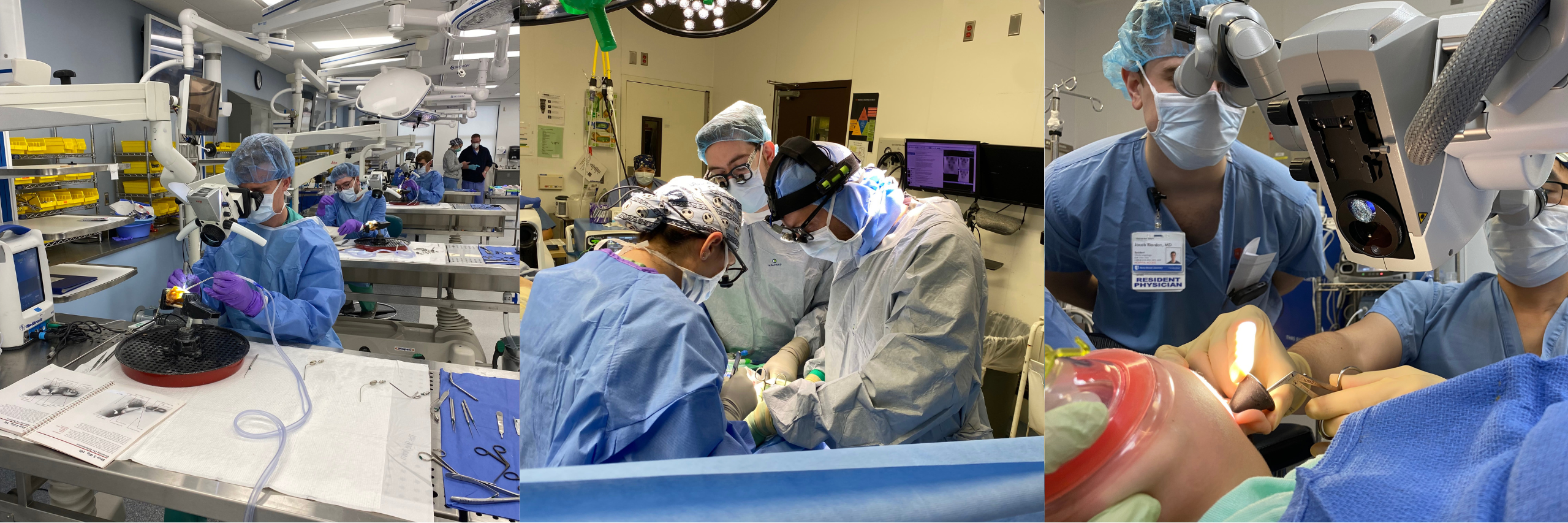Discovering the Area of Otolaryngology: What to Anticipate When You Consult an ENT
Otolaryngology, commonly referred to as ENT, includes the medical diagnosis and therapy of ear, throat, and nose conditions. For those experiencing relevant concerns, speaking with an ENT specialist can give quality and alleviation. Recognizing what to anticipate throughout such consultations is essential for reliable communication and care. This introduction will outline vital elements of the ENT experience, consisting of typical reasons for gos to and the procedures associated with diagnosis and therapy.

Understanding Otolaryngology: An Overview
Otolaryngology, frequently referred to as ENT (Nose, ear, and throat) medication, is a specific branch of medication that concentrates on the medical diagnosis and treatment of conditions affecting these critical areas of the human body. This field incorporates a large range of conditions, consisting of those pertaining to hearing, balance, breathing feature, and speech. Otolaryngologists are trained to handle both surgical and clinical therapies, using sophisticated methods and technologies. Their proficiency extends past conventional conditions, attending to issues such as allergic reactions, sinus infections, and hearing loss. Furthermore, they play an essential function in the management of head and neck cancers, offering comprehensive treatment tailored to specific client needs. On the whole, otolaryngology continues to be necessary for preserving health and lifestyle in damaged individuals.
Usual Reasons to See an ENT Professional
Several individuals seek the competence of an ENT expert for a variety of factors, reflecting the diverse nature of problems that influence the ear, throat, and nose. Typical problems consist of chronic sinusitis, which commonly brings about persistent nasal blockage and face discomfort. Allergies and their connected signs, such as itching and sneezing, additionally motivate check outs to these specialists (ENT). Hearing loss, whether unexpected or gradual, is another considerable factor for appointment. On top of that, individuals may look for evaluation for throat problems, consisting of relentless hoarseness or ingesting problems. Sleep apnea, defined by cut off breathing during sleep, is often addressed by ENT specialists too. Each of these problems highlights the value of specialized care in managing intricate ENT-related health and wellness problems
Getting ready for Your ENT Visit
When preparing for an ENT consultation, it is necessary to collect relevant information and take into consideration any type of particular concerns. People must compile an in-depth clinical history, including previous ear, nose, or throat concerns, surgical procedures, and current medications. Recording symptoms-- such as seriousness, regularity, and duration-- can supply beneficial insights for the ENT professional. Additionally, people ought to prepare a list of inquiries they wish to ask, making sure that all worries are dealt with during the see. Bringing along any appropriate clinical records or examination results can further assist the ENT in comprehending the patient's problem. Ultimately, people ought to verify their consultation details, consisting of time, day, and place, to decrease any last-minute complication. Appropriate prep work can improve the performance of the consultation and bring about better outcomes.
What to Anticipate During the Appointment
As the appointment starts, the individual can anticipate to participate in a thorough discussion with the ENT specialist about their signs and medical background. The professional will certainly ask about the period, regularity, and extent of signs and symptoms such as hearing loss, nasal congestion, or aching throat. Additionally, the patient's previous clinical conditions, medications, and any pertinent family history will certainly be examined, aiding my site the expert in developing a complete understanding of the person's health. The ENT might likewise ask about lifestyle aspects, such as exposure to irritants or irritants. This open dialogue develops read what he said a foundation for the examination, guaranteeing that the patient's worries are dealt with and establishing the phase for any kind of needed assessments or recommendations for therapy.
Diagnostic Examinations and Procedures in Otolaryngology
A variety of diagnostic tests and treatments are important in otolaryngology to precisely assess and detect conditions influencing the nose, ear, and throat. Common tests consist of audiometry, which measures hearing function, and tympanometry, assessing middle ear stress. Nasal endoscopy allows visualization of the nasal flows and sinuses, while laryngoscopy examines the throat and vocal cords. Imaging techniques, such as CT scans and MRIs, give thorough views of head and neck frameworks. Allergic reaction testing might additionally be performed to determine triggers for sinus or respiratory concerns. These diagnostic tools allow ENT professionals to develop a thorough understanding of people' conditions, guaranteeing customized and efficient management plans. Proper diagnosis is crucial for successful treatment outcomes in otolaryngology.
Therapy Options Provided by ENT Specialists
ENT experts use a range of therapy choices customized to resolve specific conditions affecting the throat, nose, and ear. These treatments range from conservative approaches, such as medication and way of life alterations, to even more invasive procedures. As an example, allergies may be handled with antihistamines or immunotherapy, while persistent sinusitis could call for nasal corticosteroids or sinus surgical treatment. For hearing loss, ENT specialists usually recommend hearing help or medical interventions like cochlear implants. In cases of throat disorders, options can consist of speech sinus swelling relief therapy or operations to remove obstructions. In addition, they may provide support for taking care of rest apnea, including the use of CPAP tools or surgical treatments. On the whole, the goal is to boost patients' top quality of life with personalized treatment and efficient treatment methods.
When to Seek Follow-Up Care With an ENT
Recognizing when to look for follow-up care with an ENT specialist is vital for taking care of continuous symptoms or difficulties associated with ear, throat, and nose problems. Clients need to think about scheduling a follow-up visit if signs and symptoms persist regardless of initial treatment, such as persistent ear discomfort, nasal congestion, or throat discomfort. Modifications in hearing, equilibrium issues, or uncommon nasal discharge might also call for further examination. In addition, if a patient experiences negative effects from recommended medications or has undertaken a surgery, follow-up treatment is necessary to keep track of healing and resolve any type of problems. Timely assessments can ensure reliable management of conditions, prevent possible difficulties, and offer assurance concerning one's health and wellness. Seeking follow-up care promotes positive health and wellness administration in otolaryngology.
Frequently Asked Questions

What Certifications Should I Look for in an ENT Specialist?
When seeking an ENT specialist, one should seek board qualification, appropriate experience, and strong patient reviews. In addition, efficient interaction abilities and a compassionate strategy can substantially improve the total therapy experience.
Exactly how Do I Pick the Right ENT for My Requirements?
Selecting the ideal ENT expert includes assessing their certifications, experience, and client testimonials (Voice). It is important to contemplate their communication design and strategy to treatment, ensuring they straighten with the individual's particular health needs and choices
Exist Any Kind Of Dangers Related To ENT Procedures?
The dangers related to ENT treatments might include infection, bleeding, anesthetic issues, and prospective damage to bordering structures. Patients need to discuss these threats with their medical professional to comprehend specific problems and guarantee informed choices.
Exactly How Can I Take Care Of Anxiousness Before My ENT Appointment?
To take care of anxiety before a consultation, people can practice deep breathing exercises, visualize positive outcomes, prepare inquiries in advance, and look for assistance from good friends or family members, fostering a sense of reassurance and peace.
What Should I Do if I Experience Side Effects From Treatment?
The person needs to promptly report them to their health care service provider if side effects from therapy happen. Changes to treatment or added interventions may be necessary to guarantee safety and security and efficiency in handling their problem - ENT Clinic. As the appointment starts, the person can expect to engage in an extensive discussion with the ENT professional concerning their signs and medical history. These diagnostic tools allow ENT professionals to develop a complete understanding of people' conditions, making certain customized and efficient monitoring plans. ENT professionals provide a variety of therapy options tailored to attend to particular conditions influencing the ear, nose, and throat. When looking for an ENT expert, one need to look for board qualification, relevant experience, and solid person testimonials. Choosing the ideal ENT professional involves assessing their qualifications, experience, and individual reviews